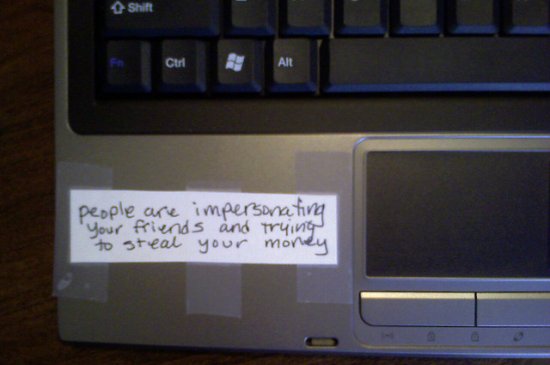
#8 Sweepstakes
These are alluring scams because of the promise of money, a vacation or a prize of some sort. These scams used to be done by phone or mail, but now are much more common online. You may get a message on social media, via email or on a website you're browsing on the page or in a pop-up. How this scam works is that you're asked to pay a processing fee or “taxes” on the amount to get your winnings or whatever prize you've been offered. You pay up and you get nothing but regret for falling for this scam. Don't buy into it no matter how tempting the offer is.
#7 Click Baiting
Click bait scams start with an enticing link usually on a trending bit of news or celebrity gossip. These are common on social media, but can also come in emails that get passed around. When you click to see a story or video, malware or viruses can be downloaded onto your computer. Sometimes a site may ask for information to access the video. Sites may even mimic a fraud site to look like a Facebook page to collect information more easily. To protect yourself, you can hover over a link before clicking it. When you hover, look at the bottom of your screen and it will show where the link goes to. If it's to a dot com you're not familiar with, don't click. You can always check Google News to research the item of interest.
#6 Credit Card Robocall
This is also known as the “Rachel with Cardholder Services” scam. It starts with a robocall (an automated call) supposedly from your credit card company. The robocall says it's Rachel from cardholder services (or something similar) and that she can get you a lower interest rate. To take advantage, you have to be connected to a live attendant. From there, they collect your credit card information and charge you a “fee” to give you this great new offer. The FTC cracked down on the original scam and has awarded refunds to some victims, but the agency also says because the fraud was so successful, it will likely see a resurgence. Be suspicious of anyone that wants to charge you a fee to get you a financial deal.
#5 Medical Alert
This scam preys on older Americans – as so many scams seem to do. Usually it starts with a robocall that says it's from a medical alert business and either offers a free medical alert bracelet or a message that says a relative or friend bought one for you. You're asked to press a button for a representative or another number to get off the list. The FTC recommends that you hang up right away. If you get to an agent, you're told you must pay a processing or set-up fee for your “free” device and then once they have your credit card number, the charges don't stop. Warn your older loved ones to be on the look out for this scam.
Be sure to read tomorrow's blog for the top four scams to be on the look out for in 2015.
